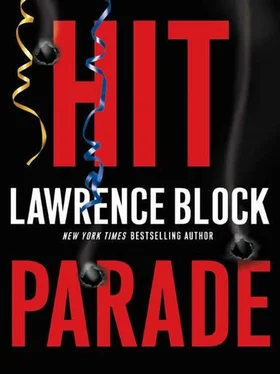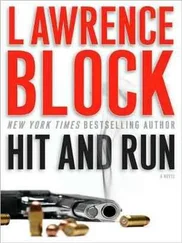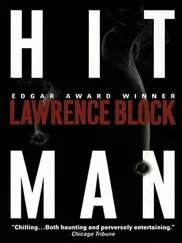They seemed like real nice fellows, too, the kind of guys you wouldn’t mind hanging out with. Not a sadist or pyromaniac in the lot, as far as he could tell. And did you think Jesse James wet the bed? Like hell he did.
In the morning he drove on to Coffeyville and paid the admission charge and took his time studying the exhibits. It was a pretty bold act, robbing two banks at once, but it might not have been the smartest move in the history of American crime. The local citizens were just waiting for them, and they riddled the brothers with bullets. Most of them were dead by the time the shooting stopped, or died of their wounds before long.
Emmett Dalton wound up with something like a dozen bullets in him, and went off to prison. But the story didn’t end there. He recovered, and eventually got released, and wound up in Los Angeles, where he wrote films for the young motion picture industry and made a small fortune in real estate.
Keller spent a long time taking that in, and it gave him a lot to think about.
Most of the timehe was quiet, but now and then he talked to the dog.
“Take soldiers,” he said, on a stretch of I-80 east of Des Moines. “They get drafted into the army, they go through basic training, and before you know it they’re aiming at other soldiers and pulling the trigger. Maybe they have to force themselves the first couple of times, and maybe they have bad dreams early on, but then they get used to it, and before you know it they sort of enjoy it. It’s not a sex thing, they don’t get that kind of a thrill out of it, but it’s sort of like hunting. Except you just pull the trigger and leave it at that. You don’t have to track wounded soldiers to make sure they don’t suffer. You don’t have to dress your kill and pack it back to camp. You just pull the trigger and get on with your life.
“And these are ordinary kids,” he went on. “Eighteen-year-old boys, drafted fresh out of high school. Or I guess it’s volunteers now, they don’t draft them anymore, but it amounts to the same thing. They’re just ordinary American boys. They didn’t grow up torturing animals or starting fires. Or wetting the bed.
“You know something? I still don’t see what wetting the bed has to do with it.”
Coming into New Yorkon the George Washington Bridge, he said, “Well, they’re not there.”
The towers, he meant. And of course they weren’t there, they were gone, and he knew that. He’d been down to the site enough times to know it wasn’t trick photography, that the twin towers were in fact gone. But somehow he’d half expected to see them, half expected the whole thing to turn out to have been a dream. You couldn’t make part of the skyline disappear, for God’s sake.
He drove to the Hertz place, returned the car. He was walking away from the office with his suitcase in hand when an attendant rushed up, brandishing the little stuffed dog. “You forgot somethin’,” the man said, smiling broadly.
“Oh, right,” Keller said. “You got any kids?”
“Me?”
“Give it to your kid,” Keller told him. “Or some other kid.”
“You don’t want him?”
He shook his head, kept walking. When he got home he showered and shaved and looked out the window. His window faced east, not south, and had never afforded a view of the towers, so it was the same as it had always been. And that’s why he’d looked, to assure himself that everything was still there, that nothing had been taken away.
It looked okay to him. He picked up the phone and called Dot.
She was waitingfor him on the porch, with the usual pitcher of iced tea. “You had me going,” she said. “You didn’t call and you didn’t call and you didn’t call. It took you the better part of a month to get home. What did you do, walk?”
“I didn’t leave right away,” he said. “I’d paid for two weeks.”
“And you wanted to make sure you got your money’s worth.”
“I thought it’d be suspicious, leaving early. ‘Oh, I remember that guy, he left four days early, right after Mr. Egmont died.’”
“And you thought it’d be safer to hang around the scene of a homicide?”
“Except it wasn’t a homicide,” he said. “The man came home after an afternoon at the golf course, locked his door, set the burglar alarm, got undressed, and drew a hot bath. He got into the tub and lost consciousness and drowned.”
“Most accidents happen in the home,” Dot said. “Isn’t that what they say? What did he do, hit his head?”
“He may have smacked it on the tile on the way down, after he lost his balance. Or maybe he had a little stroke. Hard to say.”
“You undressed him and everything?”
He nodded. “Put him in the tub. He came to in the water, but I picked up his feet and held them in the air, and his head went under, and, well, that was that.”
“Water in the lungs.”
“Right.”
“Death by drowning.”
He nodded.
“You okay, Keller?”
“Me? Sure, I’m fine. Anyway, I figured I’d wait the four days, leave when my time was up.”
“Just like Egmont.”
“Huh?”
“He left when his time was up,” she said. “Still, how long does it take to drive home from Phoenix? Four, five days?”
“I got sidetracked,” he said, and told her about the Dalton Boys.
“Two museums,” she said. “Most people have never been to one Dalton Boys museum, and you’ve been to two.”
“Well, they robbed two banks at once.”
“What’s that got to do with it?”
“I don’t know. Nothing, I guess. You ever hear of Nashville, Indiana?”
“I’ve heard of Nashville,” she said, “and I’ve heard of Indiana, but I guess the answer to your question is no. What have they got in Nashville, Indiana? The Grand Ole Hoosier Opry?”
“There’s a John Dillinger museum there.”
“Jesus, Keller. What were you taking, an outlaw’s tour of the Midwest?”
“There was a flyer for the place in the museum in Coffeyville, and it wasn’t that far out of my way. It was interesting. They had the fake gun he used to break out of prison. Or it may have been a replica. Either way, it was pretty interesting.”
“I’ll bet.”
“They were folk heroes,” he said. “Dillinger and Pretty Boy Floyd and Baby Face Nelson.”
“And Bonnie and Clyde. Have those two got a museum?”
“Probably. They were heroes the same as the Daltons and Youngers and Jameses, but they weren’t brothers. Back in the nineteenth century it was a family thing, but then that tradition died out.”
“Kids today,” Dot said. “What about Ma Barker? Wasn’t that around the same time as Dillinger? And didn’t she have a whole houseful of bank-robbing brats? Or was that just in the movies?”
“No, you’re right,” he said. “I forgot about Ma Barker.”
“Well, let’s forget her all over again, so you can get to the point.”
He shook his head. “I’m not sure there is one. I just took my time getting back, that’s all. I had some thinking to do.”
“And?”
He reached for the pitcher, poured himself more iced tea. “Okay,” he said. “Here’s the thing. I can’t do this anymore.”
“I can’t say I’m surprised.”
“I was going to retire a while ago,” he said. “Remember?”
“Vividly.”
“At the time,” he said, “I figured I could afford it. I had money put aside. Not a ton, but enough for a little bungalow somewhere in Florida.”
“And you could get to Denny’s in time for the early bird special, which helps keep food costs down.”
“You said I needed a hobby, and that got me interested in stamp collecting again. And before I knew it I was spending serious money on stamps.”
Читать дальше












